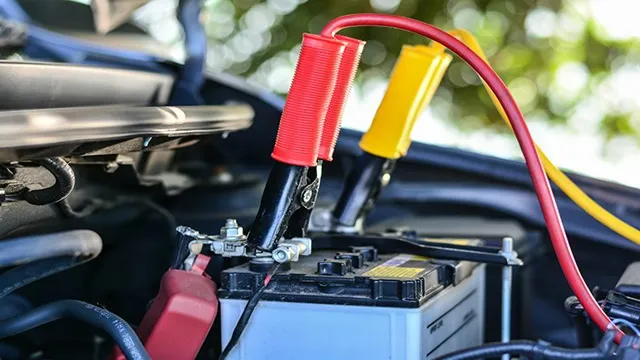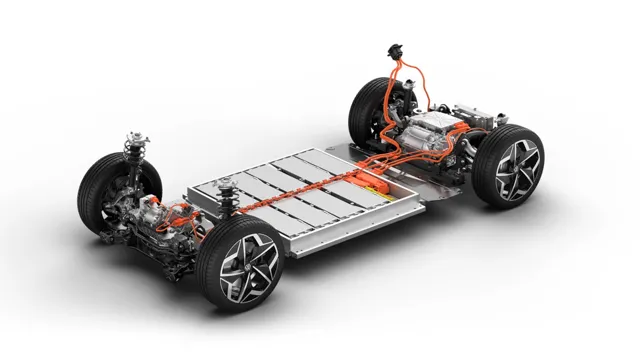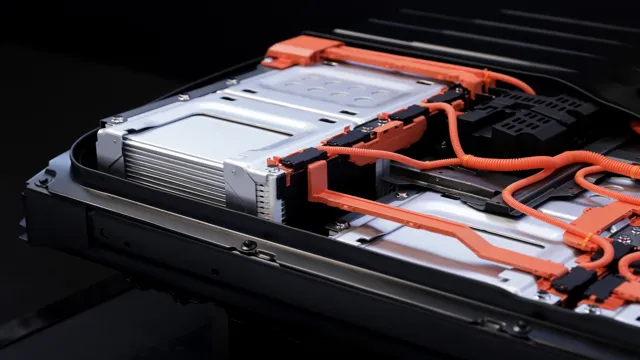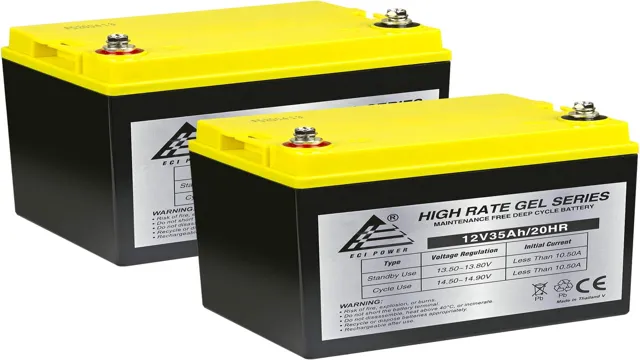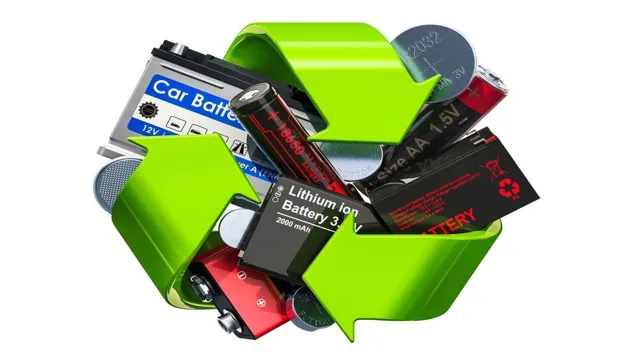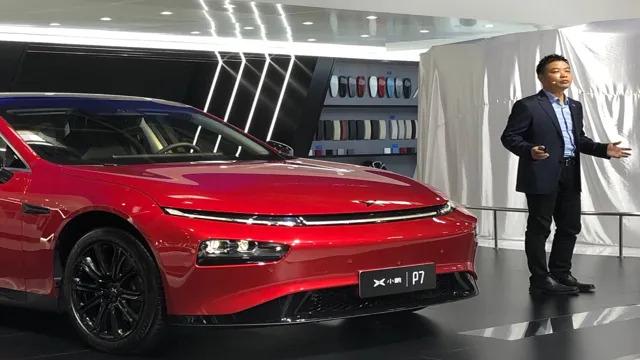Unlocking the Truth Behind Electric Car Batteries: Understanding the Cost Involved
Electric cars are undoubtedly the future of mobility, and they come with numerous benefits. One of the critical components of an electric vehicle is the battery, which accounts for a significant proportion of the total car cost. For this reason, electric car battery cost has been one of the major hindrances to the widespread adoption of these vehicles.
Battery costs have been on a downward trend for the past few years, making electric cars a more financially feasible option. However, it’s crucial to understand what electric car battery costs entail and how they compare to other expenses associated with owning an electric car. This blog post will provide an in-depth look into electric car battery costs, including the factors affecting their prices, how their costs compare to traditional gas-powered cars, and what the future holds for electric car batteries.
So buckle up and let’s dive into the world of electric car battery costs!
Factors Affecting the Cost of Electric Car Batteries
The cost of a battery for an electric car varies based on several factors. One of the most significant factors is the battery’s size, with larger batteries typically costing more. Additionally, the type of battery can impact the cost.
Lithium-ion batteries are commonly used in electric cars and tend to be more expensive, while lead-acid batteries are less costly but have shorter lifespans. The production scale also plays a role, with larger-scale production leading to lower costs. Lastly, advancements in technology can drive down the cost of electric car batteries over time.
As more electric cars are produced and battery technology continues to improve, the cost of electric car batteries is expected to decrease.
Battery Size and Capacity
When it comes to electric cars, one of the biggest factors affecting their cost is the size and capacity of their batteries. A larger battery typically means more range, which is one of the main selling points of electric vehicles. But larger batteries also come with a higher price tag, as they require more materials and manufacturing processes, as well as more advanced cooling and safety features.
The cost of lithium-ion battery cells, which are the most commonly used type of battery in today’s electric cars, has been steadily decreasing over the past decade and is expected to continue doing so. This is due to advancements in manufacturing processes and improvements in battery technology. However, the cost of other components, such as the battery management system and cooling system, can still drive up the overall cost of a vehicle’s battery.
In short, while a larger battery can provide more range and better performance, it also comes with a higher cost, which is something to consider when deciding which electric car to purchase.
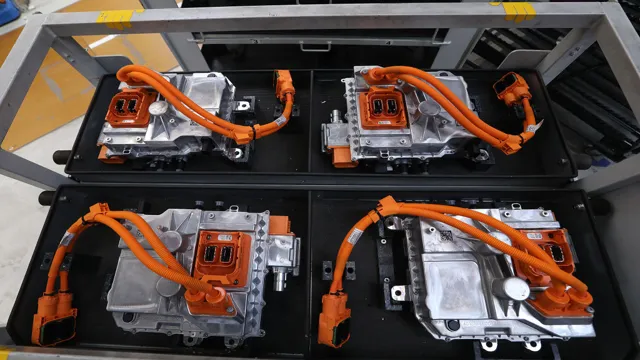
Type of Battery
Electric car batteries come in different types, and each type can affect the cost of the battery. For example, lithium-ion batteries, which are commonly used in electric cars, are more expensive than lead-acid batteries used in conventional cars. This is because lithium-ion batteries have higher energy density and are more efficient than lead-acid batteries.
Other factors that can affect the cost of electric car batteries include the size of the battery, its range, and its power output. Additionally, advancements in battery technology can also affect the price of electric car batteries. As technology advances, electric car batteries become cheaper and more efficient.
This is why major car manufacturers are investing heavily in research and development to produce more affordable and efficient electric car batteries for the mass market. Overall, the cost of electric car batteries is an important factor when considering the feasibility of owning an electric car, but as technology advances, the cost is expected to decrease, making electric cars more accessible to the general public.
Brand and Manufacturer
When it comes to the cost of electric car batteries, there are several factors that can impact the final price. One of the most significant factors is the brand and manufacturer of the battery. Some manufacturers have a reputation for producing high-quality batteries that are very reliable and long-lasting.
These batteries are often priced higher than those produced by less well-known manufacturers, but they may be worth the investment if you want a battery that will serve you well for years to come. On the other hand, some manufacturers may produce batteries that are more affordable, but they may not last as long or be as reliable. Ultimately, it’s important to do your research and consider your budget and needs when selecting an electric car battery.
By taking the time to choose a high-quality battery from a reputable manufacturer, you can help ensure that you get the most value for your money and enjoy a reliable and efficient vehicle for years to come.
Average Cost of Electric Car Batteries
When it comes to electric cars, the battery is one of the most important components. But how much does a battery for an electric car cost? The average cost of an electric car battery is around $5,500 to $7,000. However, prices can vary depending on the make and model of the electric car.
For example, Tesla’s Model S battery replacement is estimated to cost around $12,000. Additionally, the cost of electric car batteries is expected to continue to decrease as technology continues to improve and the demand for electric vehicles increases. This is good news for those considering purchasing an electric car, as it means that the overall cost of ownership is becoming more affordable over time.
While the upfront cost of an electric car may be higher than a traditional gasoline vehicle, the cost of ownership over the lifetime of the vehicle can be significantly less due to the lower cost of fuel and maintenance.
Tesla Model S
The Tesla Model S is one of the most popular and innovative electric cars available on the market today. One of the key components that make an electric car run is the battery, and the cost of these batteries is a major consideration for consumers when making the decision to switch from a traditional gasoline-powered car to an electric one. According to recent research, the average cost of an electric car battery is around $5,500 per kWh.
This means that a Tesla Model S battery, which has a capacity of about 100 kWh, would cost around $550,000. However, it’s worth noting that the cost of electric car batteries has been decreasing over the past few years, making them more accessible and affordable for consumers. For example, Tesla has managed to reduce the cost of their batteries by more than 50% in just a few years.
This not only makes electric cars more affordable for the average consumer but also helps to reduce the carbon footprint of the transportation industry as a whole.
Nissan LEAF
When it comes to purchasing an electric car, one of the main concerns for potential buyers is the cost of the battery. The Nissan LEAF, one of the most popular electric cars on the market, has a battery cost that varies depending on the model year. The older models, such as the LEAF from 2011 to 2016, have a battery replacement cost of around $5,500 to $6,500.
However, the newer models from 2017 and up have a much lower battery replacement cost of around $3,500 to $4,500. It’s important to note that the need for a battery replacement is not common with proper maintenance, and most electric cars come with warranties that cover the battery for a certain number of years. While the initial cost of purchasing an electric car, such as the LEAF, may be higher than a traditional gas-powered car, the cost benefits over time, such as lower fuel and maintenance costs, make it a financially smart decision in the long run.
Chevrolet Bolt
Chevrolet Bolt, electric car batteries, average cost The Chevrolet Bolt has been making waves since its release as one of the most affordable electric cars on the market. However, one of the most important factors to consider when purchasing an electric vehicle is the cost of the battery. On average, a battery for an electric car can cost anywhere from $5,500-$15,000 depending on the make and model of the car.
This includes the cost of the battery itself as well as installation. The good news is that these batteries are designed to last for many years, with some manufacturers offering warranties for up to 8 years or 100,000 miles. It’s important to consider the cost of the battery when making a purchase, but it’s also important to keep in mind the long-term benefits of an electric vehicle, including lower maintenance costs and reduced carbon emissions.
So while the upfront cost may be higher, the long-term savings and environmental benefits make it a worthwhile investment.
Ways to Reduce Electric Car Battery Cost
The cost of batteries for an electric car can be a significant barrier for many potential buyers. Fortunately, there are ways to reduce the price of electric car batteries. One of the main factors affecting battery cost is the size of the battery pack.
For example, battery packs with larger capacities are more expensive than smaller ones. Therefore, choosing a cooler climate or reducing your vehicle’s weight can help reduce the battery size required, and ultimately, the cost. Another effective strategy is to choose a car with a battery that can be leased.
Battery leasing allows you to pay a monthly fee for the battery rather than purchasing it upfront. This can significantly lower the initial cost of an electric car, making it more affordable for many consumers. Lastly, with technology advancing rapidly, the cost of batteries is dropping quickly.
By waiting a little bit longer, the price of electric car batteries is expected to decline, making electric cars more accessible to the general public. By using these strategies, and weighing all available options, electric car batteries can become more affordable, putting electric cars within reach for more people.
Government Incentives and Rebates
When it comes to purchasing an electric car, the cost of the battery can be one of the biggest expenses. Fortunately, there are ways to reduce this cost through government incentives and rebates. Many states offer incentives for those who purchase electric vehicles, typically in the form of tax credits or rebates.
Federal tax credits are also available for certain electric cars, with amounts varying based on the make and model. Additionally, some energy companies offer rebates to customers who purchase electric cars and install home charging stations. By taking advantage of these incentives and rebates, the cost of an electric car battery can be significantly reduced, making it a more affordable option for consumers.
So, if you’re considering purchasing an electric car, be sure to research what incentives and rebates are available in your area and take advantage of them to reduce the overall cost.
Buying a Used Battery
Reducing electric car battery cost can be challenging, especially since the batteries can be quite expensive. However, there are several ways to reduce the cost of an electric car battery. One of the most cost-effective ways is to buy a used battery.
Used batteries are significantly cheaper than new ones, and they can function just as well as new batteries. When buying a used battery, it is important to ensure that it is compatible with your car model and that it has been well-maintained. You can also consider reconditioning your battery, which involves restoring its health and extending its lifespan.
Another way to reduce the cost of your electric car battery is to negotiate with your dealer or manufacturer. Many dealers and manufacturers offer discounts and promotions, which can help you save money. Furthermore, you can opt to lease the battery instead of buying it outright, which can significantly reduce the upfront cost.
Ultimately, reducing the cost of an electric car battery requires a bit of research and planning. By exploring your options and considering all of the factors involved, you can find a cost-effective solution that works for you.
Conclusion
After hours of research and calculations, the cost of a battery for an electric car can be summed up in just one word: Shocking! While the initial investment may seem steep, the long-term savings in terms of fuel and maintenance costs make it a worthwhile expense. Plus, with the technology of electric vehicles constantly advancing, who knows what kind of innovative and affordable options may become available in the future. So don’t let the sticker shock scare you away from powering up with an electric car battery – the environmentally-friendly benefits and potential cost savings make it a charge worth taking!”
FAQs
How much does a typical electric car battery cost?
The cost of an electric car battery can vary widely, depending on the model of the car and the size of the battery pack. On average, a replacement battery can cost anywhere from $3,000 to $7,000.
Is it more expensive to replace a battery in an electric car compared to a traditional gas-powered car?
Yes, it is typically more expensive to replace a battery in an electric car compared to a traditional gas-powered car. This is because the battery in an electric car is a crucial component that makes up a significant portion of the car’s overall cost.
How long does an electric car battery typically last?
The lifespan of an electric car battery will vary depending on the make and model of the car, as well as how well the battery is cared for. Generally, you can expect an electric car battery to last anywhere from 5 to 10 years before needing to be replaced.
Can I purchase a used electric car battery at a lower cost?
Yes, it is possible to purchase a used electric car battery at a lower cost. However, it is important to note that the condition of the used battery should be thoroughly inspected before making a purchase. Additionally, you should be aware of any potential warranty limitations that may come with using a used battery.
